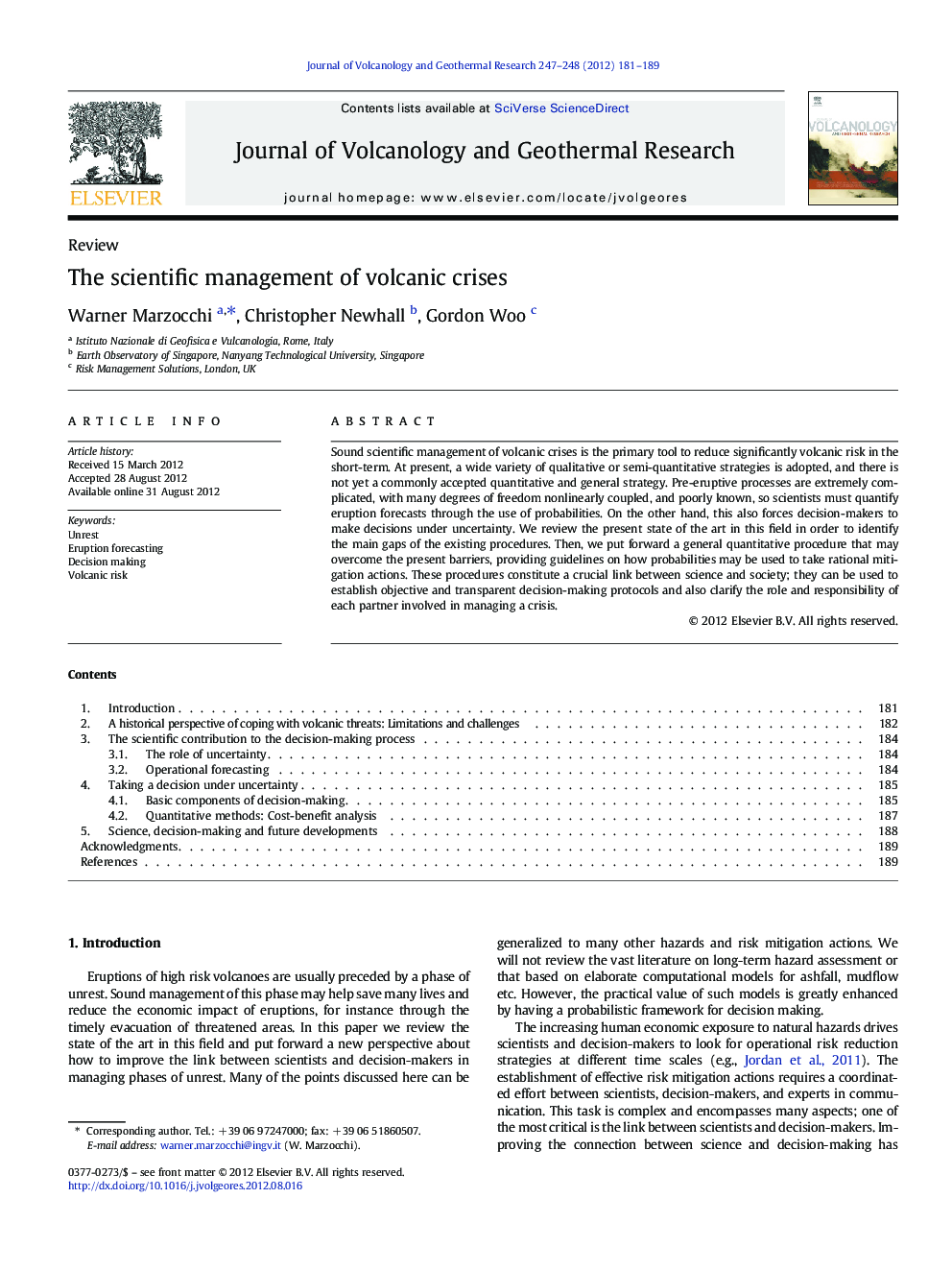| Article ID | Journal | Published Year | Pages | File Type |
|---|---|---|---|---|
| 4713672 | Journal of Volcanology and Geothermal Research | 2012 | 9 Pages |
Sound scientific management of volcanic crises is the primary tool to reduce significantly volcanic risk in the short-term. At present, a wide variety of qualitative or semi-quantitative strategies is adopted, and there is not yet a commonly accepted quantitative and general strategy. Pre-eruptive processes are extremely complicated, with many degrees of freedom nonlinearly coupled, and poorly known, so scientists must quantify eruption forecasts through the use of probabilities. On the other hand, this also forces decision-makers to make decisions under uncertainty. We review the present state of the art in this field in order to identify the main gaps of the existing procedures. Then, we put forward a general quantitative procedure that may overcome the present barriers, providing guidelines on how probabilities may be used to take rational mitigation actions. These procedures constitute a crucial link between science and society; they can be used to establish objective and transparent decision-making protocols and also clarify the role and responsibility of each partner involved in managing a crisis.
► Volcanic risk reduction is one of the primary goals of research in volcanology. ► The extreme complexity of pre-eruptive volcanic processes allows scientists to forecast the future evolution of a volcanic unrest only in a probabilistic manner. ► This is a formidable challenge for decision makers that have to take decisions under uncertainties. ► Here, we review the state of the art on this issue and we put forward a possible objective, transparent and quantitative strategy to link probabilistic forecasts and sound decision making.
